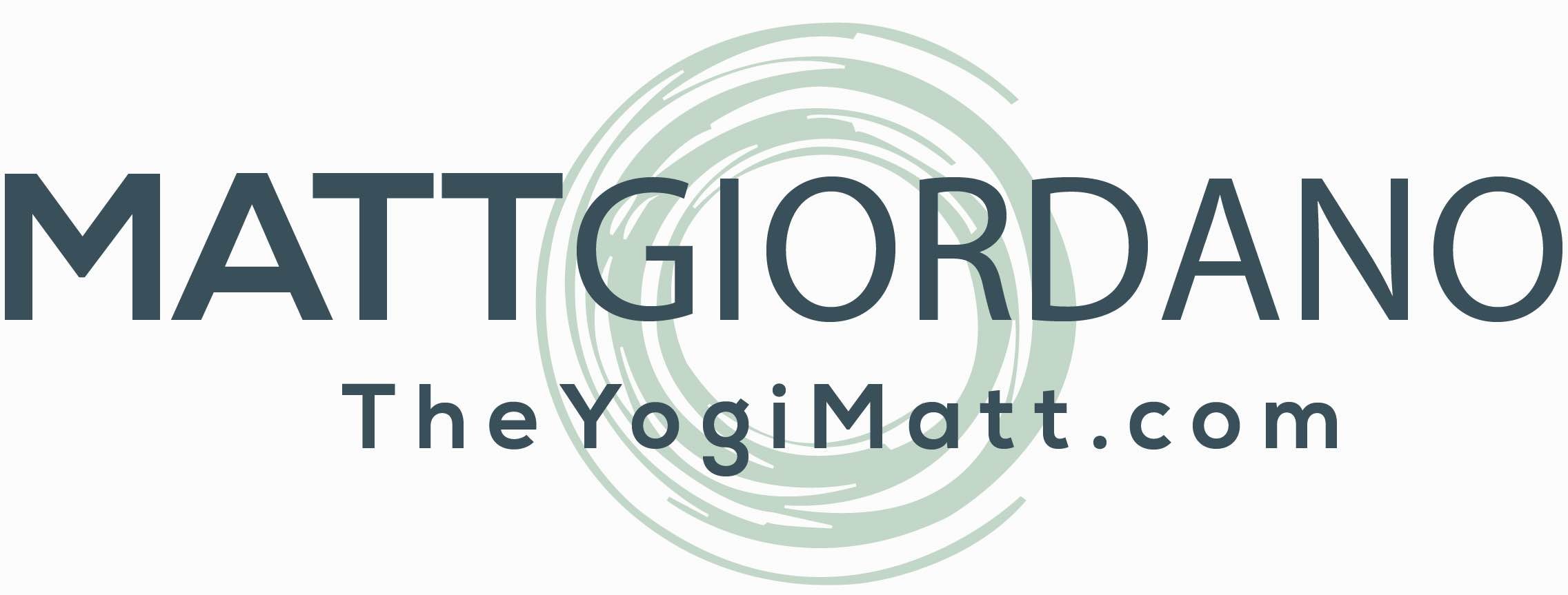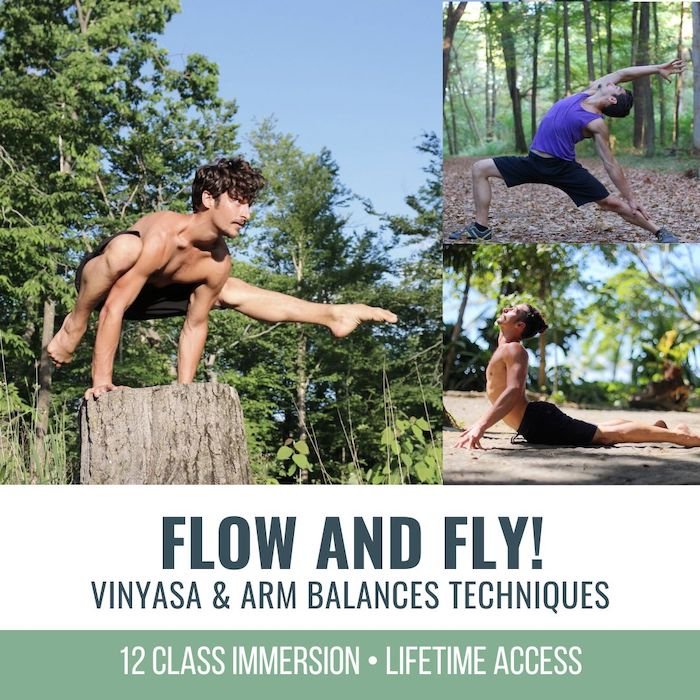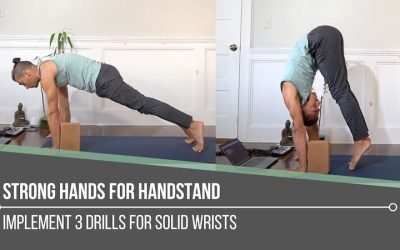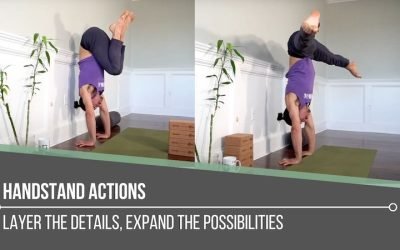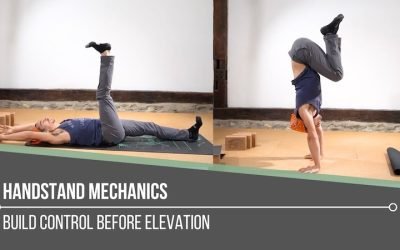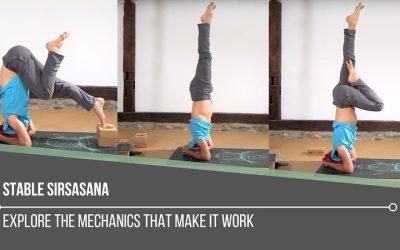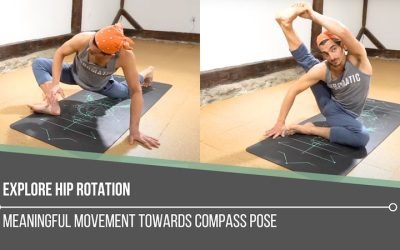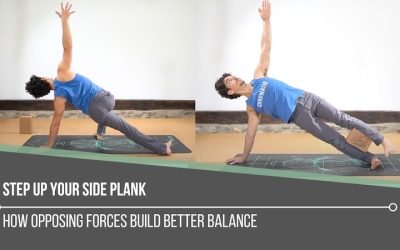Strong Hands For HandstandSTABILITYSTRONG HANDS FOR HANDSTAND When it comes to building strength for handstand, it starts at the base: our hands. Developing strong hands means targeting the wrist flexors, the very muscles that help create a trustworthy foundation....
One Legged Crow
One-Legged Crow
3 Building Blocks Before Flight
eka pada bakasana
One-Legged Crow
LEAN FORWARD! If it’s one thing you’ll cozy up with when it comes to One-Legged Crow, it will be your ability to LEAN FORWARD! In a yoga posture like One-Legged Crow, the fear of leaning more forward can be quite real. Your first instinct will be to lean back in order to avoid falling, but when you practice with Matt, it’s guaranteed you’ll be provided with the tools for a safe and strong progression to this incredible arm balance. What you’ll come away with today is a better understanding of how to set up your environment; in addition, you’ll become more familiar with what’s required of your wrists and with techniques to make One-Legged Crow more accessible within your yoga practice.
FLOW & FLY
MAY 2023 Immersion
- 12 Vinyasa-style practices
- Increase your cardiovascular activity
- Foundational and advanced arm balance techniques
- Improve balance and proprioception
- Accessible modifications and sequences
- Appropriate variations for your level of practice
- Improve wrist, core, and shoulder strength
- ALL LEVELS APPROPRIATE
$148.00
WHERE TO PLACE YOUR AWARENESS
There’s no doubt that the adductors, hamstrings, and glute muscles play a role in lifting the back leg in One-Legged Crow, but Matt explains that more emphasis and awareness should be placed on creating more mobility in the flexors of the wrist, for wrist extension in order to lean forward. Leaning forward shifts the pendulum of weight, making your lower body much lighter and keeping the leg at a certain height; therefore less effort is required to lift the back leg with the aforementioned muscles. Otherwise, the secret lies in building strength in your upper body. In addition to strengthening the flexors of the wrist (more on that here), activating the rotator cuff muscles, in particular the external rotators (infraspinatus and teres minor) along with the internal rotators (subscapularis and teres major) will help to create more stability in your arm balances.
WATCH THE VIDEO
ONE LEGGED CROW: 3 BUILDING BLOCKS BEFORE FLIGHT
A GREAT PLACE TO START
The first thing Matt advises you to do, once you’re ready to explore variations of One-Legged Crow, is to set up a number of couch cushions, bolsters, or pillows in front of you. Creating this support will allow you to have more confidence and trust in your willingness to lean forward. If you fall, there’s a soft landing.
The first drill supports the development of your ability to lean forward. Without a doubt, you’re developing strength in the flexors and extensors of the wrist and in the adductors, serratus anterior, and core. There’s no emphasis yet on lifting the back leg; as you’ll see in Matt’s demonstration, the back foot remains on top of yoga blocks while you work on the momentum of bringing the leg forward that hugs into your upper arm. In this drill, you are practicing One-Legged Crow with more control.
200 HOUR ONLINE TEACHER TRAINING
GET CERTIFIED & DEEPEN YOUR YOGA PRACTICE
- Deepen your yoga practice
- Build confidence speaking in front of groups in person and online
- Learn foundational class structures and templates
- Learn techniques for a wide range of yoga postures
- Get certified and highly qualified to teach yoga
- Yoga Alliance Globally Recognized Certification Program
ONE-LEGGED CROW PROGRESSIONS
Once the previous drill becomes less effortful, it’s time to progress. In the video, you’ll see how Matt breaks it down.
Option 1
First, you take one leg outside the upper arm; the other foot stays on the ground. Second, you’ll lean forward while gripping the ground. Third, you might find the ability to pull your knee into your chest (similarly to Lolasana).
Progressing even further requires that your environment be primed with cushions, as Matt recommends. The next variation levels up in challenge quite significantly.
Option 2
First, place your head directly on top of soft cushions while you get into Crow Pose. Second, lift your bum high and squeeze your knees in. Third, pull one heel to the bum and then straighten the leg. If it’s available, you can take your gaze forward.
300 HOUR ONLINE TEACHER TRAINING
GET 500 HOUR CERTIFIED AS A MASTER TEACHER
Master your skill set as a teacher through refined techniques, anatomy, biomechanics, sequencing, philosophy, meditation techniques, theming, yoga business, and much more!
- Get 500 hour certified
- Learn anatomy, biomechanics, asana techniques
- Expand your teaching skills
- Masterful sequencing and verbal delivery
- Learn meditation and breathwork techniques
- Transformative tools: theming, dharma talks, satsang
FIND EASE WITHIN THE CHALLENGE
The actions that may feel difficult early on in your explorations of One-Legged Crow are the keys to finding ease later on. Gripping the ground, getting your hips up, and hugging the knees into your upper arms in all of the variations and drills that Matt demonstrates prepare you with the necessary strength within your body. Once this strength is fully integrated, your ability to lean forward will feel more safe and natural. In the video, Matt explains that ease in this posture actually comes in the final variation he demonstrates, because the body is now equipped with all of the techniques it needs.
Matt’s current immersion, Flow and Fly, provides you with step-by-step techniques for over 12 arm balances. Sign up to learn how to find ease in flight.
See you on the mat!
The 200 Hr. Teacher Training: Click Here to See the Next Start Date
The 300 Hr. Advanced Teacher Training: Click Here to See the Next Start Date
Article by Trish Curling
Video Extracted From: Anatomy of Arm Balances
FLOW & FLY
MAY 2023 Immersion
- 12 Vinyasa-style practices
- Increase your cardiovascular activity
- Foundational and advanced arm balance techniques
- Improve balance and proprioception
- Accessible modifications and sequences
- Appropriate variations for your level of practice
- Improve wrist, core, and shoulder strength
- ALL LEVELS APPROPRIATE
$148.00
Continue Learning
Strong Hands For Handstand
Handstand Actions
Handstand ActionsLEAN, GRIP, PUSHHANDSTAND ACTIONS Handstand isn’t something we conquer in a single class, it’s a layered process that demands repetition and refinement. There are certain key handstand actions that are non-negotiable: lifting the shoulders up to the...
Handstand Mechanics
Handstand MechanicsINVERSIONHANDSTAND MECHANICS Stability, strength, and coordination come together in the pursuit of mastering handstand mechanics. One of the most critical foundations is internal rotation at the hip joints, which can aid with certain entries and...
Stable Sirsasana
Stable SirsasanaHEADSTANDSTABLE SIRSASANA Creating a stable Sirsasana is less about the final pose and more about the mechanics that lead us there. From weight transfer and spinal alignment to hamstring flexibility and shoulder engagement, each layer matters. Unlike...
Explore Hip Rotation
Explore Hip RotationSURYA YANTRASANAEXPLORE HIP ROTATION Hip rotation isn’t just an anatomical concept—it’s an open invitation to become more intimate with our body’s story. In yoga, we often live in lateral (external) rotation, especially in hip-opening postures....
Step Up Your Side Plank
Step Up Your Side PlankVASISTHASANASTEP UP YOUR SIDE PLANK Side Plank might look simple, but true proficiency starts in the details. One of the keys to refining the posture is learning how opposing muscle groups create an isometric contraction—a subtle engagement that...
THE FREE TECHNIQUE PACK
When You Subscribe, You Will Get Instant Access to
- the Technique Pack: 15 yoga pose breakdowns
- exclusive online course discounts
- exclusive blogs and videos
